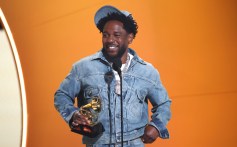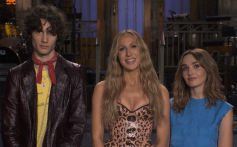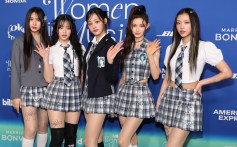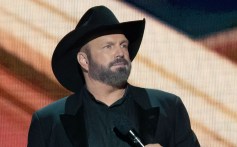Business
Page: 18
Trending on Billboard
The 2026 Grammy nominations were announced Friday (Nov. 7), with Bad Bunny, Sabrina Carpenter, Kendrick Lamar and Lady Gaga highlighting some of the biggest categories. Within the traditional Big Four categories — record of the year, song of the year, album of the year and best new artist — Interscope led all record labels with eight nominees among the 32 slots, giving parent company Universal Music Group (UMG) a commanding 21 of those 32 nods. What’s more, Interscope’s leadership structure means its total is even higher: Interscope Capitol includes Capitol (two nominations), Motown (two nominations) and the joint HYBE/Geffen partnership that signed KATSEYE (one nomination), meaning that Interscope Capitol led the way with 13 total nominations in those four categories.
Related
That marks the fifth time in the past eight years Interscope has led among labels. Interscope artists that received those nominations were Billie Eilish (record, song), Kendrick Lamar (record, song, album) and Lady Gaga (record, song, album). Capitol’s nominations were for Doechii (record, song), Motown’s came for Leon Thomas (album, best new artist) and KATSEYE’s nomination was for best new artist.
In second among labels with six nominations is Island Records, which achieved a few feats of its own. For the second year in a row, the label had two nominees for best new artist. This year, those two honorees are Olivia Dean and Lola Young, while last year, Carpenter and Chappell Roan were both nominated (Roan ultimately took home the award). Island — which led all labels last year, when Carpenter and Roan were both nominated in all of the Big Four categories — also saw additional nominations for Carpenter (record, song and album) and Roan (record), each of whom has received nominations in those categories for the second year in a row. Carpenter now joins Taylor Swift (who has done it twice) as the only artists to receive album of the year nominations in back-to-back years since the categories were expanded from five to eight nominees for the 2019 ceremony.
Related
Island is also part of a larger structure in REPUBLIC Collective, which encompasses Republic Records, Def Jam and more. REPUBLIC Collective, overall, received eight nominations, as “Golden” from the Kpop Demon Hunters soundtrack was nominated for song of the year for Republic Records and Justin Bieber’s SWAG album, released by Def Jam, was recognized for album of the year.
In third among labels is Atlantic, which got song and record nominations for ROSÉ and Bruno Mars’ “APT.,” as well as best new artist nominations for Alex Warren and The Marías. In fourth is Rimas, home to Bad Bunny, who saw his DeBÍ TiRAR MáS FOToS album nominated for album of the year, while its title track “DtMF” got song and record nominations. Columbia also grabbed two nominations — album of the year for Tyler, The Creator’s CHROMAKOPIA and best new artist for Addison Rae — while Roc Nation Distribution got a nod for releasing Clipse’s album of the year-nominated Let God Sort Em Out and Warner Records kept its best new artist success alive with a nod for Sombr, marking the seventh best new artist nod the label has racked up in the past six years.
Among label groups, the aforementioned UMG dominated with 21 nominations, while Warner Music Group accounted for five, the indies collectively garnered four and Sony Music had two.
Trending on Billboard
Few artists have had as big a year as Sombr. The 20 year old New York native broke out in a big way in 2025, with two top 20 Billboard Hot 100 hits — “Back To Friends,” which peaked this week at No. 12, and “Undressed,” which reached No. 16 in October — and the release of his debut album, I Barely Know Her, which reached No. 10 on the Billboard 200 in September.
This week, things are getting even better: the singer/songwriter is set to make his debut on Saturday Night Live this weekend, and just today (Nov. 7) received a Grammy nomination in the coveted best new artist category. To add on to that, last night he finished the sold out North American leg of his first-ever headlining tour in his hometown, across 31 dates in which every single venue had to be upgraded to accommodate demand, with several cities adding dates as well. All told, according to UTA data, Sombr has sold more than 100,000 tickets across two dozen countries, including his first-ever sold-out arena show at the 3Arena in Dublin, with more shows in Australia and Europe to come later this year into next. And that victory earns UTA agent John “JT” Taylor the title of Billboard’s Executive of the Week.
Related
Taylor, who is Sombr’s co-agent alongside UTA partner Matt Meyer, also has a long relationship with the Jonas Brothers, for whom he played guitar and served as musical director in their early days, before joining their management team at Philymack from 2014 to 2022. He is now their agent as well, as the group is in the midst of a tour that has sold 442,000 tickets and grossed $42.4 million from shows between Aug. 10 and Sept. 29, according to figures reported to Billboard Boxscore. Here, Taylor discusses Sombr’s remarkable rise, the logistics of having to upgrade so many venues on a tour while an artist is blowing up and more. “I haven’t ever seen it this quickly, personally,” Taylor says of Sombr’s rise. “It’s indicative of the way artists are able to effectively engage and reach audiences far and wide through smart digital strategy and great partnership with DSPs and social media platforms.”
Sombr broke out in a big way this year with two top 10 Hot 100 hits, and this week, he wrapped the North American leg of his Late Nights & Young Romance Tour, having sold out the entire run, according to UTA figures. How did you approach the booking and routing for someone who was actively making a name for themselves at the time, and what key decisions did you make to help make that happen?
To begin with, we are so fortunate to be working with a very special artist who is particularly attuned to his fan base. Shane’s fans are the most important thing in the world to him, so he has been incredibly focused on the fan experience throughout every step of this incredibly rapid growth trajectory. As for the strategy, we have an incredible IQ department at UTA that helped us as we determined our strongest markets and how to best estimate demand as we determined venue size. We worked with individual local promoters, who we are proud to have great relationships with, to ensure we could keep ticket prices accessible, the venues open to all ages, and to make sure we had Shane playing in iconic places that his fans would be excited about.
As things continued to explode for Shane online, on the airwaves and beyond, it became evident that the rooms we had initially booked, which were the right rooms at the time, were simply too small. With the awareness we might leave too many fans unable to see a show, we pivoted quickly in real time to upgrade wherever we could.
sombr in his home studio.
Bryce Glenn
Each venue on the North American tour was upgraded, and multiple dates were added in several cities. How do you make the call to do that and how difficult is it, logistically to pull off the switch, and overall to assess the correct venue size for an artist without much touring history?
Throughout this process, Shane has prioritized the fans and their experience. That mandate definitely brought with it some challenges, but was ultimately rewarding in the end. Shane wanted to upgrade wherever possible, but with the caveat that he didn’t want to change dates, didn’t want to refund tickets or cancel any of the shows. He was admirably adamant that we honor all of the original tickets sold at face value. This meant that our team — Matt Meyer, Jess Braunstein and myself — had to work with the promoters to find what larger rooms were available and able to accommodate those who already purchased tickets in the same seating configuration. We had to navigate this while renegotiating our current deals, all while considering the additional expenses associated with the larger rooms, and continuing to keep ticket prices fair and accessible throughout. We are very proud to say we were able to accomplish this in almost every market, which felt almost like a miracle once we had pulled it off.
He’s also performed in Europe and is about to go to Australia, with more European dates planned for next year, and has sold over 100,000 tickets across more than a dozen countries. How rare is that for an artist so relatively new, and how did you approach each territory?
Some markets still really depend on the artist showing up and doing the leg work to build the audience, such as Japan, but even there Shane played Summer Sonic in August as his first-ever festival appearances and first time in the country, and already has amassed strong offers to return to a rapidly growing base. In Europe, we played a few headline shows in key markets, where the data was overwhelmingly convincing to test the waters. Shane was quick to alert us to the incredible numbers he was seeing in Ireland, for example. Again, we moved quickly and did everything we could to stay ahead of the explosive growth as we plotted out our 2026 headline run, which sold out clean on the on-sale, including highlights of three nights at Brixton in London and capping off with a show at the legendary 3Arena in Dublin.
Related
How do you continue to grow an artist over the years into a real touring heavyweight?
By always prioritizing and supporting the artist’s vision and always putting the fan experience first. We are so fortunate to have an incredible team to support that vision with care and expert level strategy. We work closely across all departments at UTA to ensure we are not leaving any opportunity overlooked. Beyond the walls of our buildings, we have amazing partners at Warner Records, High Rise PR and of course with Shane’s team at The System — Andy Boose and Ann Perkins.
What’s next for Sombr?
SNL! His first ever Australian shows, the aforementioned headline European/U.K. run and some amazing festival looks in 2026.
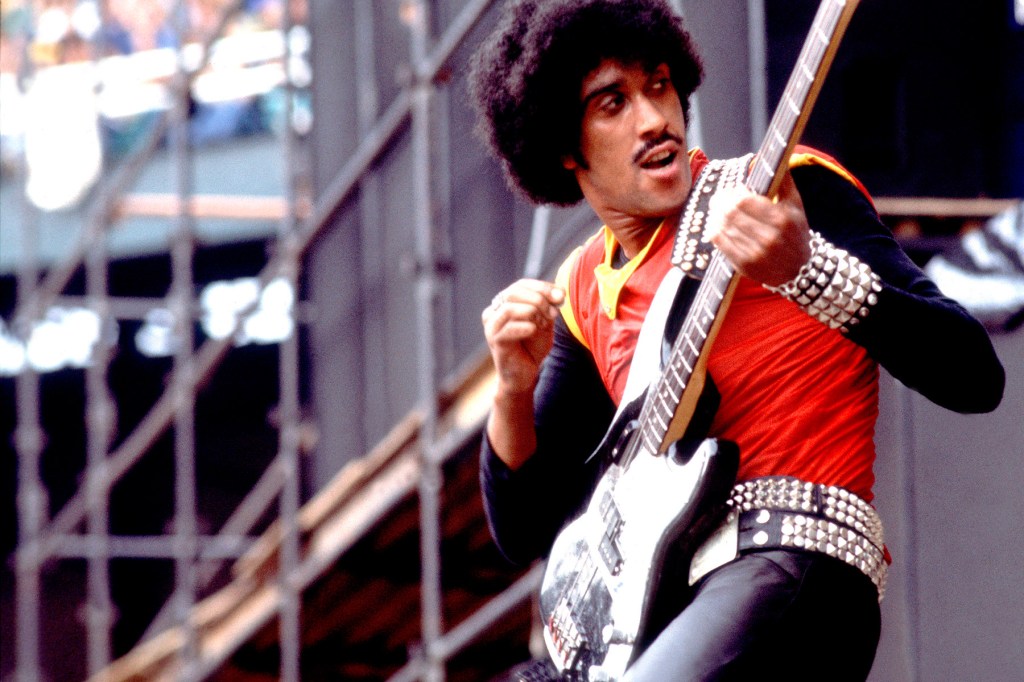
Trending on Billboard Another day, another flood of music industry deals. How does one keep track? In an effort to provide an overview of the latest acquisitions, mergers, joint ventures, licensing agreements and more, Billboard publishes a list of all of the latest pacts that have hit our radar every other Thursday. Intellectual property rights […]
Trending on Billboard Leda Chang has been named senior vice president of global brand and audience for Warner Music Group’s global catalog division, a newly created role aimed at accelerating the company’s artist-focused marketing strategy. Reporting to global catalog president Kevin Gore, Chang will lead efforts to deepen fan engagement and unlock new growth opportunities […]
Trending on Billboard
Led by concerts and music releases from aespa and NCT WISH, SM Entertainment revenue rose to 321.6 billion KRW ($237.3 million), up 32.8% from the prior year period, in the third quarter of 2025, the company announced Thursday. Operating profit jumped 262% to 48.2 billion KRW ($35.6 million) and net income soared 1,100% to 44.7 billion KRW ($33 million).
“In this quarter…our leading artists have continued to prove their solid capabilities while new IPs are growing rapidly and adding fresh energy to the company,” CEO Cheol-hyuk Jang said during Thursday’s earnings call. “This generational synergy further reinforces the foundation of our IP portfolio, exemplifying the virtuous cycle of a sustainable IP ecosystem that SM Entertainment aims to build.”
Related
Recorded music rose 32.7% to 96.7 billion KRW ($71.4 million). New album sales grew to 5.42 million from 3.61 million in the third quarter of 2024. NCT WISH’S COLOR – The 3rd Mini Album, sold 1.48 million units while aespa’s 6th mini album, Rich Man, sold 1.13 million units. SM Entertainment does not break out streaming performance.
Concert revenue rose 37.5% to 52.5 billion KRW ($38.7 million) despite SM Entertainment having fewer concerts compared to the prior-year period. RIIZE’s RIIZING LOUD tour had 20 shows during the quarter in Seoul, Japan, and Hong Kong. NCT DREAM performed 8 concerts in Seoul and Thailand. Super Junior had 6 shows in Seoul, Hong Kong and Indonesia.
Merchandise and licensing revenue rose 32.8% to 50.3 billion KRW ($37.1 million) on the strength of concert merchandise and pop-up retail stores. The company cited aespa’s concert merchandise and light stick sales and pop-up stores from aespa, NCT WISH and Super Junior.
Looking ahead, Jang provided details of SMTR25, an “artist incubation project” intended to help SM Entertainment expand globally. SMTR25 has 15 trainees who are taking part in a new reality TV series, Reply High School, that will be released in the first half of 2026. SMTR25 also released an original content series, W.O.W! (Way Outta Walls) a travel series produced with support from the Korean Tourism Organization.
Jang also highlighted the early success of a young SM Entertainment group, Hearts2Hearts. “Within a short period of time, Hearts2Hearts has proven its capabilities across all fronts — musical success, fandom growth, and brand influence — solidifying its position as SM Entertainment’s next-generation global IP,” he said.
Trending on Billboard
Hearing Judy Garland‘s 16-year-old voice singing the original “Over the Rainbow” a cappella — minus The Wizard of Oz orchestration — was not the intensely emotional experience you might predict for her daughter, Lorna Luft. As the singer and actress put it: “Well, I heard my mom sing it a lot.”
But this newly edited version of Garland’s signature song, which makes its debut on streaming services on Friday (Nov. 7), will blow most Oz fans’ minds. “It’s just so honest and so pure,” says Luft. “To be able to hear my mother’s vocal as if you’re in a room with her, and there is no piano, just her vocally — people have gotten so emotional when they hear this. It takes them back to where they were when they heard the song.”
Related
This stripped-down “Over the Rainbow” is part of a re-recorded The Wizard of Oz soundtrack that first aired only as part of The Wizard of Oz at Sphere, an immersive 4D version of the 1939 classic that opened at the Las Vegas venue in June. The uncluttered voice of Garland, who died in 1969, is the centerpiece of the new 42-track recording, which unites the original actors’ voices with a contemporary orchestra convened at the original MGM studio in Culver City, Calif. “You’re hearing things that you’ve never heard before — nuances and themes you didn’t catch onto — because you’re hearing it so clearly,” says Julianne Jordan, the production’s music supervisor.
To prepare Oz for its Sphere treatment, the production team separated the vocal stems from the music and the background noise from the original mono recordings. “I had an Oscar-winning friend, who will be unnamed at the moment, who did a test for me and took ‘Over the Rainbow’ and said, ‘I can help,’” says Ralph Winter, Sphere Studios’ head of production. “What he was able to do was separate out the music and the effects and the tracks and the noise and come up with just Dorothy’s vocals. It was so pure to hear what only maybe those studio executives and the director heard back in 1939.”
In August 2024, the Sphere team convened an 80-piece orchestra to re-record the tracks from the Oz score at the MGM scoring stage, now owned by Sony, in Culver City, Calif. Conducted by longtime film composer David Newman, the orchestra employed instruments used for Oz, like the ocarina, or hand flute, featured in the Scarecrow’s “If I Only Had a Brain.”
Related
To align the new orchestral recordings with the original vocals from Garland, Ray Bolger (who played the Scarecrow), Bert Lahr (the Cowardly Lion), Buddy Ebsen (the original Tin Man, who sang for the soundtrack but was replaced in the film) and the rest, Sphere Studios and Warner Bros. Post Production Creative Services teamed up to separate the tracks into stems. Thus, in spring 2024, Jordan was present when the Sphere team unveiled the a cappella “Over the Rainbow” on a Warner Bros. stage. “Not a dry eye,” she says. “Incredible. Really clean.”
The original “Over the Rainbow,” recorded in October 1938, was two Garland takes spliced together. “She got up [to] ‘somewhere over the rainbow, way up high’ — and she coughed, and she apologized, and they started again,” says John Fricke, a New York-based Oz historian who has written several books about Garland and the film. “They used the beginning of that take because they liked it more and married it with the almost-full take of the rest of the song.”
Luft shared the new a cappella version two weeks ago with Fricke, a longtime friend who first heard the original when he viewed The Wizard of Oz on TV in 1956. “My first reaction was, it’s amazing that this can get to me the way it does when I know every second of that track,” Fricke says. “The magic is that it’s still magical.”
Related
The original Oz score and soundtrack, created at the MGM studios in 1938, was created by a team of musicians that included songwriting duo Harold Arlen and E.Y. “Yip” Harburg, who wrote classics like “Over the Rainbow” and the vaudeville-influenced “If I Only Had a Brain” and “Follow the Yellow Brick Road.” Meanwhile, the studio’s music director, Herbert Sothart, composed most of the score, including the ghostly strings and brass in “The Haunted Forest.” According to Luft, the Garland estate, which includes her half-sister Liza Minnelli, owns Garland’s name and likeness rights and quickly signed off on the new “Over the Rainbow” release after Sphere inquired.
“I just want people to understand how important this movie is, and this song, and now to be able to hear my mother’s vocal as if you’re in a room with her,” Luft says. “It’s a song about finding a better place. That doesn’t mean physical. It means in your mind. It means there is hope.”
Trending on Billboard
Echoing disagreements between YouTube and music rights holders, Alphabet-owned YouTube TV is currently in fraught negotiations with Disney over the amounts the pay TV streaming platform is willing to pay for the company’s TV channels, which were pulled from YouTube TV on Oct. 30 after the two sides failed to agree on the terms of a licensing renewal.
The fracas is part of a larger pattern, artist manager and businessman Irving Azoff wrote in a Nov. 5 op-ed at Billboard. Azoff, a longtime YouTube critic, called the company “a behemoth bully” that uses its vast market power to coerce content owners. “The playbook is always the same: if you refuse to accept YouTube’s below-market terms, YouTube threatens to go dark until you capitulate.”
Related
Similar disagreements have plagued the music industry’s relationship with YouTube over the decades. (YouTube TV is run separately from YouTube, which generates most of its income from advertising.) Most notably, Warner Music Group pulled its catalog off YouTube in 2008 after licensing negotiations broke down. Over the years, rights owners have frequently — and publicly — complained about YouTube’s relatively low royalty payouts and a business model that allows for user-generated content that often includes copyright-protected music.
The pay TV dispute pits one of the world’s largest tech companies against the owner of some of America’s most popular TV channels. Disney owns more than 20 TV channels that span sports (ESPN, ACC Network, SEC Network), entertainment (FX, Freeform, Localish), family (Disney Channel), National Geographic and ABC and its local affiliates. Disney CEO Bob Iger has called these broadcast TV brands an “asset” that operate alongside its growing streaming platforms, Disney+ and Hulu.
News reports say that Disney offered YouTube TV terms commensurate with its latest deals with the largest pay TV providers, Comcast and Charter, while YouTube insists it has “been working in good faith” on a deal “that pays them fairly” for their content. However, Disney has cited YouTube TV’s “repeated refusal to negotiate in good faith” and demand for preferential treatment.
Related
Disputes over carriage — the agreements in which a multi-channel video distributor includes a TV network’s channels — are not uncommon. YouTube also removed Televisa/Univision channels in October and narrowly averted a blackout with Fox in August. As for Disney, carriage disputes caused its channels to briefly go missing from DirecTV in 2024, Charter in 2023 and Dish in 2022.
But the Disney-YouTube battle isn’t a battle of equals — or close to it. A relative newcomer to the pay TV business, eight-year-old YouTube TV is the fourth-largest pay TV provider in the U.S. with nearly 10 million subscribers. But YouTube TV is a small fraction of parent company Alphabet’s total business. At $83 per month and 10 million subscribers, YouTube TV generated $7.4 billion in the first nine months of 2025 — just 2.6% of parent company Alphabet’s $289 billion of revenue in that period.
For Disney, the loss of carriage fees works out to approximately $2 billion annually, or 2% of Disney’s revenues, Lightshed Partners’ Rich Greenfield told CNBC on Monday (Nov. 3). That weighs more heavily on Disney, which generated $72 billion of revenue in the first nine months of its fiscal year (the company releases fiscal year results on Nov. 13), than YouTube TV. “When Charter loses ESPN, everybody goes, ‘How can Charter survive?’,” said Greenfield. “There’s not one investor going, ‘God, is Google going to survive this?’”
Failing to reach a resolution could drive consumers to find Disney programming elsewhere. Consumers can access Disney or any other TV content in numerous places. Desired sports content such as Monday Night Football is available through ESPN Unlimited for $29.99 per month or $299.99 per year. Bundling ESPN Unlimited with Hulu — wholly owned by Disney — and Disney+ offers sports and a wider variety of programming that costs $29.99 per month with ads or $38.99 per month without ads.
A new survey from Drive Research found that 24% of YouTube subscribers have already canceled or plan to cancel their YouTube TV subscription as a result of the dispute. Additionally, 30% of subscribers said they have subscribed or intend to subscribe to ESPN Unlimited or Hulu’s live sports plan to maintain access to sporting events. Clearly, the backlash to the Disney fracas is real — but a giant like YouTube TV can afford to shed subscribers in a way other carriers likely couldn’t.
Trending on Billboard
A woman who has accused Garth Brooks of sexual assault is refusing to concede defeat in her fight to remain anonymous.
The allegations, which Brooks vehemently denies, were raised by the star’s former hairstylist, identified only as Jane Roe in court filings. But the country star won a ruling in September that she must use her real name as the litigation moves ahead.
Related
In a notice filed last month, Roe said she would ask a federal appeals court to reverse that ruling, saying that she was “appealing those portions of the order pertaining to her motions to maintain the confidentiality of her name and proceed using a pseudonym.”
A spokesperson for Brooks did not immediately return a request for comment on the case or the new appeal.
The legal battle kicked off last year, when Brooks filed a preemptive lawsuit under the name John Doe, claiming he was facing an “ongoing attempted extortion” by a woman falsely accusing him of sexual assault. Weeks later, Roe filed her own case in Los Angeles, accusing Brooks of assaulting her while she worked for him as a hairstylist.
Brooks has vehemently denied the allegations, saying in a statement that he had been threatened that the woman’s “lies” would be released to the public unless he wrote “a check for many millions of dollars.”
Related
Since last year, much of the case has been shrouded in mystery because the entire court docket has been kept under seal, an unusual step in any federal lawsuit. The judge overseeing the case took that step after Brooks filed case documents last fall in which he publicly disclosed the accuser’s name.
That disclosure sparked outrage from Roe’s attorney, who vowed to re-hide her name and seek penalties against Brooks: “Out of spite and to punish, he publicly named a rape victim,” said her attorney, Douglas Wigdor. “With no legal justification, Brooks outed her because he thinks the laws don’t apply to him.”
In later court filings, attorneys for Brooks pushed back on that, arguing that the accuser “already agreed to use her name” — citing earlier court filings in which her attorneys argued Brooks must use his.
In September, Judge Henry T. Wingate denied Roe’s motion to remain under the pseudonym, though his reasoning is unclear because the ruling remains under seal, like the rest of the docket. Her team then filed a motion for an interlocutory, or immediate, appeal of that ruling.
Related
Though the appellate case is underway, the accuser has not yet filed formal arguments. In a statement to Billboard, another of her attorneys, Jeanne M. Christensen, said they could not speak about the specifics of the appeal because of the judge’s sealing orders.
“The Mississippi action filed by Garth Brooks in a desperate effort to preemptively silence our client is currently under seal, and therefore, we cannot comment on the appeal,” said Christensen, a partner at Wigdor’s firm. “We continue to applaud our client’s courage in coming forward with her allegations of sexual assault against Brooks and are confident that he will be held accountable for his actions.”
Trending on Billboard
Over the past few years, the revenue of the organizations that collect and distribute public performance and mechanical royalties have gone up – by a collective 7.2% in 2021, an eye-popping 28.9% in 2022 and then 7.6% in 2023. But the pandemic bust and subsequent recovery boom made it hard to see trends that would shape the future of this part of the business. With the Nov. 6 release of the organization’s Global Collections Report, though, a clearer picture of this part of the music publishing business is starting to emerge.
Revenue from music collections hit 12.59 billion euros ($13.62 billion), up 7.2% from 2023, a rate of growth not so different from the previous year, while revenue from digital sources rose 10.8% to 5.01 billion euros ($5.42 billion). This, too, seems to be falling into something of a pattern: Digital revenue jumped 35.1% in 2022, then 9.5% in 2023. Revenue from live and background music – played at concerts and in places like restaurants and bars – also seems to be settling into a groove. After falling more than 45% during the pandemic, it grew 68.5% in 2022, 21.8% in 2023, and 10.4% last year to 3.38 billion euros ($3.66 billion). Revenue from television and radio climbed 1.2% to 3.42 billion euros ($3.7 billion), after growing 11.8% in 2022 and falling 5.3% in 2023.
Related
Over the past decade, global music collections rose by more than two-thirds – and the mix of revenue has changed significantly. In 2024, revenue from digital sources made up 39.8% of collection organization revenue, while television and radio accounted for 27.1% and live and background music for 26.8%. Digital and live are expected to continue to grow, especially since live revenue in most cases is pegged to concert ticket prices.
Globally, the picture hasn’t changed as fast as some hoped. Western Europe still accounts for almost half the market (47.5%) and revenue there grew 6.6%. Including the U.S. and Canada, where revenue grew 10%, the West accounts for more than 75% of global collections. For years, publishing executives expected significant growth in African and Latin America, but so far it has not lived up to expectations – revenue from Africa grew 10% while that of Latin America rose 3.3%. The latter region’s growth was hurt by a currency decline in Argentina, while growth in Asia was hampered by a slight decline in Japan for the same reason. The standout region for growth was Eastern Europe, which CISAC counts as everything from the former Iron Curtain to Central Asia, where collections grew 17.9%.
These CISAC statistics capture a significant amount of the music publishing business – but not all of it. They include all of the revenue that goes through collecting societies that are CISAC members, most of which operate on a nonprofit or not-for-profit basis, plus private companies like BMI and SESAC. (These numbers do not include GMR, or Global Music Rights, and some other entities.) In most of the world, unlike the U.S., societies collect both public performance and mechanical rights revenue, and these numbers reflect that. CISAC does not currently account for money collected for mechanical rights by the MLC, although that may change next year. These numbers also exclude revenue collected for multi-territory online rights assigned by publishers to ICE and some other European entities. For all those omissions, however, the CISAC report is one of the better ways to get a sense of music publishing.
Related
CISAC is an organization that goes far beyond music – it includes 228 collective management organizations in 111 countries and territories – including those that collect money for the use of audiovisual works, visual art, literature and drama. Much of this non-music revenue comes from Europe, where countries have an array of collecting societies for different media. Music is the biggest source of revenue by far, however, accounting for about 90% of a 13.97-billion-euro ($15.11 billion) total, which was up 6.6% from 2023. Overall, digital revenue for all rights rose by 11.2%.
“This year’s results are testament to the adaptability and resilience of creators’ collective rights management in a rapidly changing environment,” CISAC director general Gadi Oron said in a statement distributed with the report. In the same document, CISAC president Björn Ulvaeus noted that “In 2024, authors’ societies delivered record royalties to creators worldwide. This achievement is a cause for celebration, reflecting the resilience of collective management and the value of creative works in a growing market.”
Oron and Ulvaeus also took the opportunity to issue warnings about the potential threat of generative artificial intelligence. Without proper regulation, AI “risks undermining the very foundation of creative value,” Oron writes in his foreword to the report. So far, he notes, the European Commission’s implementation of the AU AI Act has fallen short of the protections in it, which amounts to “a betrayal” that “underscores the urgency of ensuring that the rights of authors are upheld in practice, not just in principle.”
Related
In his own foreword, Ulvaeus takes a similar tone. A study commissioned by CISAC projected that as much as a quarter of creators’ royalties could be lost without AI regulation as the market for AI-generated content could reach 64 billion euros in three years. “This is value flowing away from the individuals who give culture its meaning,” Ulvaeus writes. “I have urged that creators must be at the decision table, not on the outside looking in.”

 State Champ Radio
State Champ Radio 